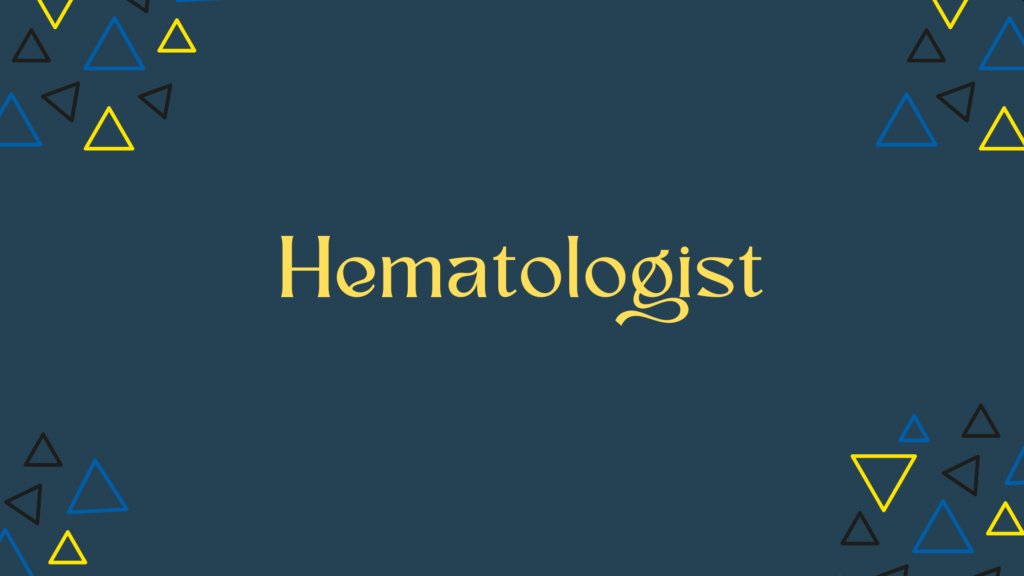A hematologist is a medical doctor who specializes in the diagnosis, treatment, and management of blood disorders. These include conditions affecting the blood, bone marrow, and lymphatic system.
🩸 What Does a Hematologist Treat?
Non-cancerous (benign) blood disorders:
- Anemia (e.g., iron deficiency, sickle cell, aplastic)
- Bleeding disorders (e.g., hemophilia, von Willebrand disease)
- Clotting disorders (e.g., deep vein thrombosis [DVT], pulmonary embolism, thrombophilia)
- Platelet disorders
- Thalassemia
Blood cancers (malignant hematology):
- Leukemia
- Lymphoma (e.g., Hodgkin, non-Hodgkin)
- Multiple myeloma
- Myelodysplastic syndromes
- Myeloproliferative disorders
🔍 What Does a Hematologist Do?
- Orders and interprets blood tests, bone marrow biopsies, and other diagnostics
- Prescribes treatments like:
- Chemotherapy
- Immunotherapy
- Targeted therapy
- Blood transfusions
- Iron or vitamin supplementation
- Anticoagulants (blood thinners)
- Coordinates with oncologists for cancer-related care
- Manages chronic conditions (e.g., lifelong clotting disorders)
- Performs or oversees bone marrow/stem cell transplants (in some settings)
🧪 Tools and Tests Used
- CBC (complete blood count)
- Coagulation studies
- Bone marrow biopsy
- Peripheral blood smear
- Flow cytometry
- Genetic and molecular testing
